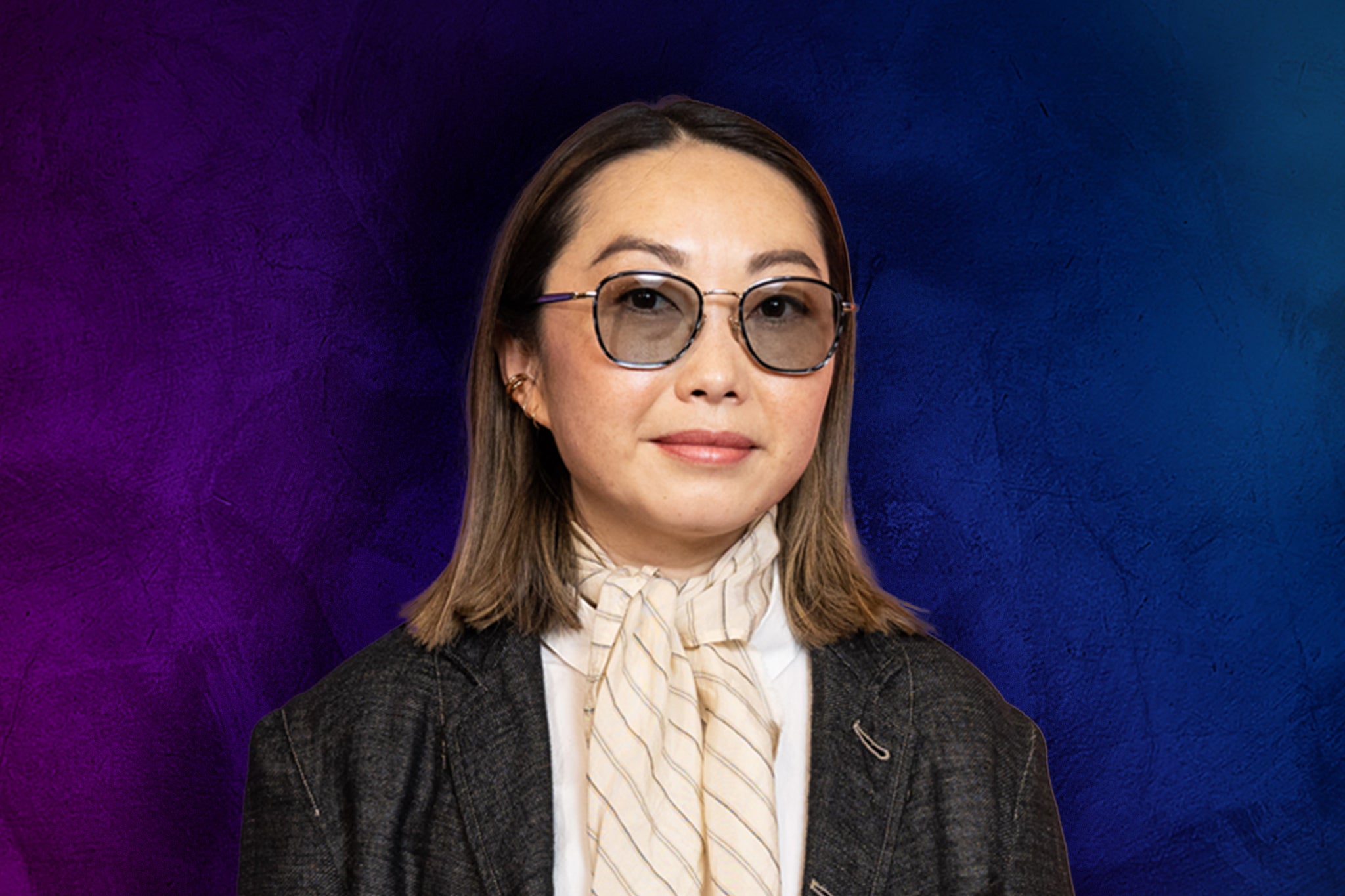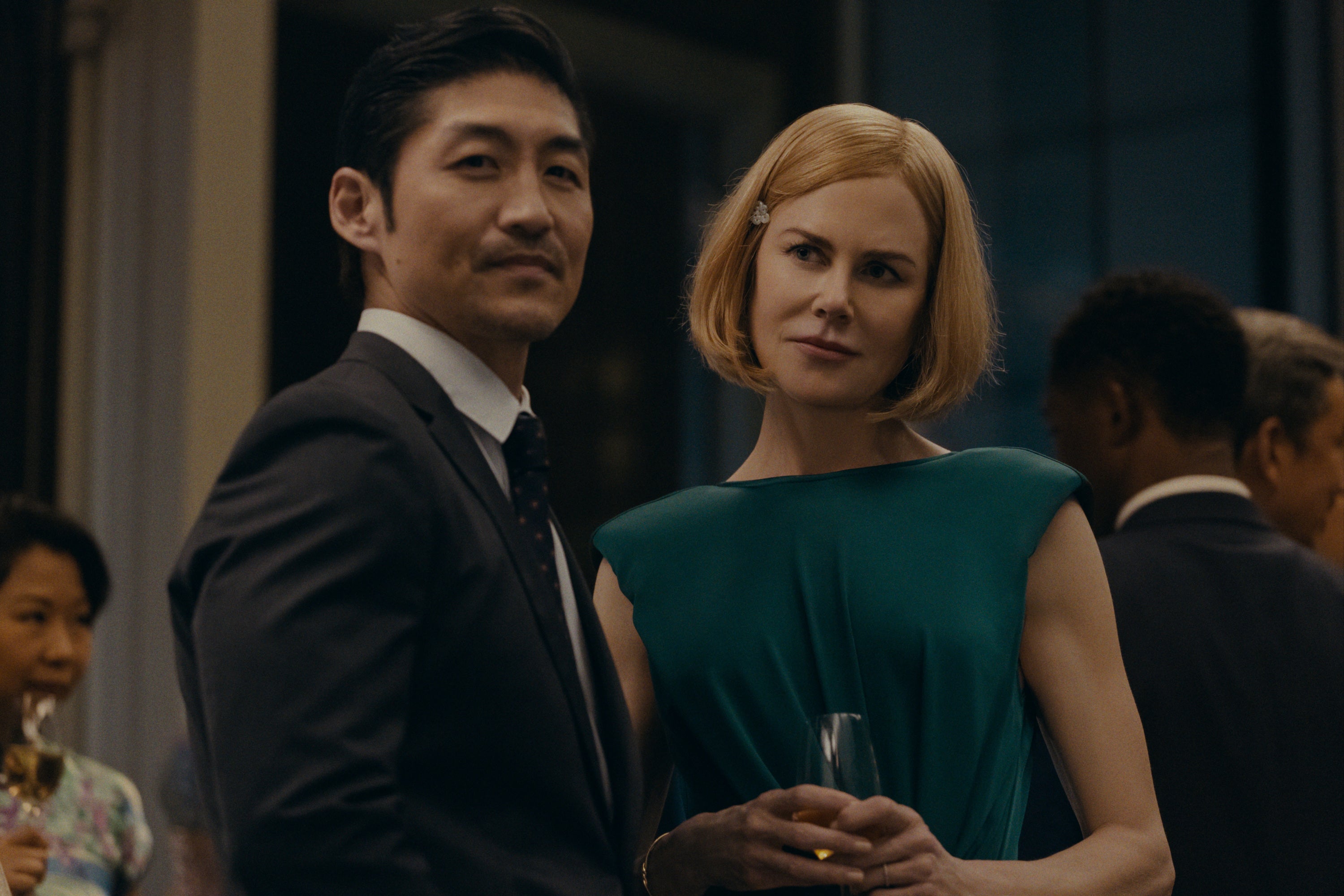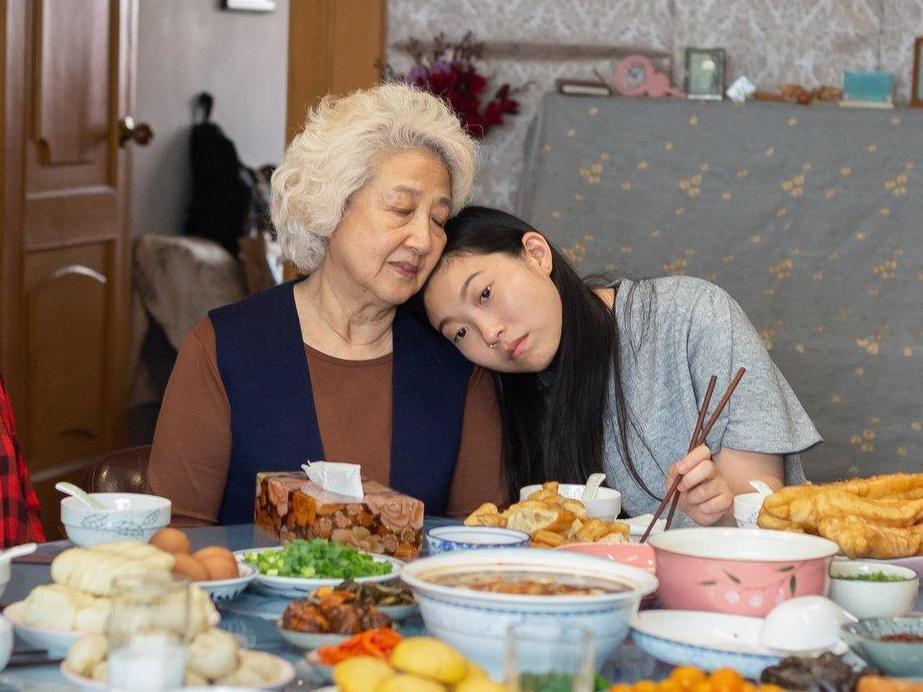Lulu Wang on directing Nicole Kidman in Expats and representation: ‘Maybe I have to be OK with some people being disappointed’
The award-winning director of ‘The Farewell’ was personally tapped up by Nicole Kidman to make ‘Expats’. She speaks to Annabel Nugent about her initial reservations taking on the project, ‘mining the family story’ for material, and the perks of her relationship with Oscar-winning filmmaker Barry Jenkins


As we say our goodbyes, Lulu Wang suddenly asks if she can take a photo of me. I’m so taken aback by the question that I say yes. The award-winning filmmaker thanks me and retrieves a cool, vintage-looking thing from a handbag on the floor. She presses her eye against the viewfinder, wraps one hand around the lens and wiggles it back and forth to focus. She pauses. I smile. Snap! And like that, I’m captured forever, grinning stupidly, on Wang’s hallowed camera roll.
At least I’m in good company. The last person to have been lensed by Wang was Nicole Kidman. In fact, it was Kidman who approached the 40-year-old director to make her new Amazon TV series Expats after having seen The Farewell, Wang’s autobiographical two-tone tale about her grandmother’s terminal illness, which earned two Golden Globe nominations and a Bafta nod in 2020. Wang is still wrapping her head around it. “When my dad met Nicole on set, I thought to myself, ‘This is a very interesting moment in my life right now,’” she laughs. But dressed in a sharply tailored suit, a black turtleneck and violet-hued spectacles, Wang certainly looks the part of a Hollywood director.
When a show starts with a missing child, where does it go? Typically, on a manhunt led by a hardy, bend-the-rules detective working through his own trauma on the side. Wang’s Expats goes a different route. Based on Janice YK Lee’s novel The Expatriates, the series explores the quietly devastating aftermath of a tragedy that brings the lives of three women – Margaret (Kidman), Mercy (Ji-young Yoo) and Hilary (Sarayu Blue) – crashing into one another, a collision that sends shards flying straight into the privileged bubble of expatriate life in Hong Kong.
Wang had reservations about taking on the series. “Firstly, I’m not from Hong Kong and I don’t live in Hong Kong, though I am an expat,” says Wang, who moved from Beijing to Florida when she was six years old. Secondly, “as a Chinese immigrant going to Hong Kong, am I an immigrant? Am I an expat? What am I there? And it was important to me to portray a world of Hong Kong that was outside that bubble of expats.” She wasn’t sure Kidman or Amazon felt the same. Plus, following up on something so successful as The Farewell is a tall order, I suggest. “I think I was more daunted by the idea of working with someone as renowned as Nicole,” she says. Not only because of the respect she carries for Kidman as an actor but because questions of artistic integrity inevitably come into play when working with a star of her stature – a gravitational force onto herself.
I had really significant conversations to make sure that I would be allowed to tackle all of the complexities I wanted to tackle before saying yes to the show
“You know, how do I make sure that I’m maintaining my voice when we come from such different backgrounds?” Wang says. “In the end, are we going to be able to find a common language and see things through one lens to make this piece even though we come from different worlds?” Happily, the answer turned out to be, yes. All those elements Wang hadn’t been sure Kidman or Amazon would let her explore were signed off. The lynchpin of the series is a 96-minute episode that focuses on the lives of the foreign domestic helpers who feature in the margins of the source material; she chose this instalment, which arrives midway through the series and barely features any of the main characters, to be shown at screenings. “I had really significant conversations to make sure that I would be allowed to tackle all of the complexities I wanted to tackle before saying yes to the show,” she explains.
Wang has always held her artistic vision sacred. In the final frame of The Farewell, a credit runs: “A film by Lulu Wang”. But she scrunches her nose when I bring it up. “People had advised me to take the credit, but I’m conflicted by it,” she says. “Because it’s not a film by me. It’s a film by a collective. But more often than not in this industry, when you set that precedent, you’re treated differently – you’re given more freedom; you’re seen as an auteur for lack of a better word. And so, I think for that film because it was so personal, I wanted to make sure that ultimately my vision was going to be respected and I wouldn’t be forced to make changes that I didn’t believe in.” It was very much a business decision, she says: “Sort of like, that’s my name there so you can’t make me do things – or I’m taking it off!”
Still, she is nervous about how Expats will be received. “I imagine, there’s always going to be people who are disappointed, but I think part of my journey is realising that I can’t represent everyone,” she says. “Maybe I have to be OK with the fact people are going to be disappointed.” It’s no longer the case that there is only one kind of Asian or Asian-American show allowed to exist. “There are so many nuances, and this show might not represent everything, but it shouldn’t have to. Other people should go and tell the stories they don’t feel are represented.”
Wang was born in Beijing, where her mother worked as the culture editor of The Beijing Literary Gazette, a now-defunct magazine a bit like The New Yorker, and her father was a diplomat to the Soviet Union. They moved to Miami when Wang was six years old, around the time of the Tiananmen Square protest; Wang fought to set Expats four years later than the events of the book so that she could include the political movements of the city (“I wanted to be able to capture the spirit of Hong Kong and what the city has been fighting for.”) On her family’s move to the States, Wang calls it the “classic immigrant tale”.

“It was that very typical thing of people who had huge careers and identities that they left behind to wait tables and work at a JC Penney,” she says. The move came no easier to her. “You know, you’re the weird Chinese kid and you get bullied for your language and your food, all those things,” she says, shrugging it off. “I’m hoping things are changing and kids have a greater understanding of different cultures, but kids are mean. I think they’re always going to find something to bully someone about.”
Before Wang was a director of high-profile TV shows and Golden Globe-nominated films, she was a director of legal reels – which, she explains, are day-in-the-life videos made by a plaintiff’s attorney to help argue their client’s case. “You just talk to them,” says Wang. “Oftentimes, it would be a medical or malpractice case, or some kind of injury case that had a significant impact on their life, whether that was losing a limb or the fact they couldn’t work anymore.”
It does help a lot to be able to ask him, ‘Has this happened to you or am I being gaslit?’ And to have a different perspective, especially a male perspective, on the business side of things
Once, Wang interviewed the young children of a man who became severely depressed as a result of an injury. “He was their father, and he couldn’t play baseball with them anymore,” she says. “You want them to be as vulnerable and open as possible, and I think the reason I was so good at it was because I wasn’t a lawyer coming in wearing a suit and tie talking about numbers. I’d just ask them, tell me your story… it was a very heavy job,” she says, exhaling a puff of air theatrically.
Her job now may be more glamorous, but it isn’t without its struggles, too. Luckily, she has someone at home to lean on. She and Oscar-winning Moonlight director Barry Jenkins have been together since 2018. They live together in New York with their dog, Chauncey. “We used to keep things really separate, very church and state, but now more and more we support each other in that way,” she says. “It does help a lot to be able to ask him, ‘Has this happened to you or am I being gaslit?’ And to have a different perspective, especially a male perspective, on the business side of things.”

Wang has found herself in a period of reflection. She was 36 when The Farewell came out, the same age her mother was when they moved to the US. “I think about that a lot,” she says. “The idea of starting over at that age, moving to a place where you don’t speak a single word of the language to be treated like an outsider.” She and her mum have spoken about it at length, “this mirroring of our lives at the exact age of 36”. They’re currently in the process of writing a book together. “And my dad is doing a podcast with The New York Times,” she adds, laughing. “We’re clearly mining the family story.”
Will she dip her toe back into autobiographical waters? “I don’t know that I have many more interesting stories,” she says, but reconsiders: maybe something about her parents. “As they get older, I think about their lives a lot and about me being able to hold onto them.” She pauses for a moment. “I want to make sure that I ask them the questions that I want to ask.”
‘Expats’ is available to watch on Prime Video from 26 January
Join our commenting forum
Join thought-provoking conversations, follow other Independent readers and see their replies
Comments
Bookmark popover
Removed from bookmarks